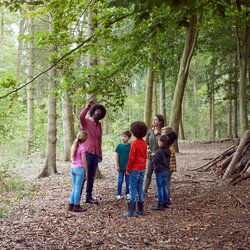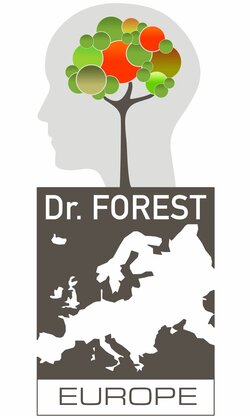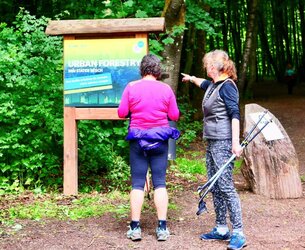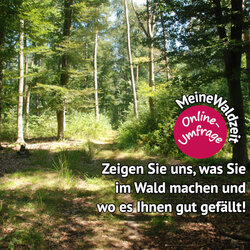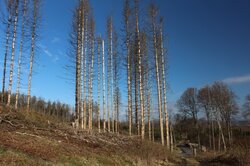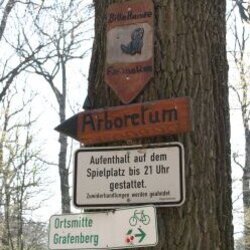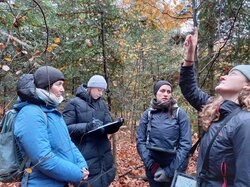Societal Change Unit
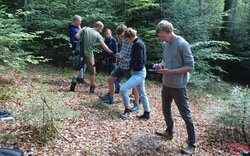
Current
projects
Dialog Forum "Experiencing the forest together - Recreation, Leisure and Sport in Baden-Württemberg"
The people of Baden-Württemberg value the forest: It is used for recreation and sports, among other things, and has a positive effect on health. The forest is also a habitat for animals and plants worthy of protection, and the workplace and economic area that forest owners and foresters take care of every day. The associated great diversity of interests and demands is good and important. At the same time, constructive dialogue between the various stakeholders is needed to promote harmonious cooperation in managing the forest. With the dialogue forum ‘Experiencing the forest together’, the Ministry of Food, Rural Affairs and Consumer Protection Baden-Württemberg (MLR) and the FVA provide the framework to promote constructive dialogue between various stakeholders connected to the forest.
Contact: Ms. Wiebke Hebermehl
Dr. Forest: Forests’ influences on human health and well-being
The pan-European project ‘Dr. Forest’ investigates to what extent the biodiversity and species richness of forests play a role in their positive effects on human health. The FVA is also involved in the project via its ‘Societal Change Unit’.
Contact: Ms. Kristina Wirth
Urban Forestry Luxemburg City
In the Urban Forestry project, the usage requirements and expectations of forest visitors for their urban forests are recorded by means of an online survey including a mapping tool. The results are processed, among other things, in the form of hotspot maps of the leisure and recreational uses of the forest. They serve as a tool to better integrate the needs of urban populations into forest and nature conservation planning and to take them into account in the future management of urban forests.
Contact: Dr. Tina Gerstenberg (Ms)
Urban Forestry
The State Forest Company ForstBW wants to improve the value of peri-urban forests as places of recreation and leisure, and to take greater account of the population’s concerns about forest design. For this purpose, the FVA has developed an online survey with including a mapping tool, in which forest visitors who regularly use routes in the forest can draw or upload them online on a map. It is also possible to mark places that are liked or less appreciated by forest visitors. The resulting maps represent activity-specific usage intensities by visitors and serve to coordinate forest planning with the concerns of visitors to the forest as a place of recreation and leisure.
Contact: Dr. Tina Gerstenberg (Ms)
People’s perceptions of climate-induced forest damages
The weather extremes of 2018 to 2021 make the consequences of climate change clearly visible here in Germany. The effects are particularly obvious through changes in our forests: Large areas are characterised by drought and bark beetle infestation. The Westerwald in Rhineland-Palatinate and the Rhine Plain in Baden-Württemberg have been particularly hard hit. Forest changes pose major challenges for forestry and for people working in forests. But what does the sight of large bare areas or visibly damaged forests trigger in the population?
Download project report (in German, PDF 1.8 MB)
Contact: Dr. Carolin Maier (Ms.)
Mapping of Forest Functions
It is well known that our forests are not only home to wood as a raw material and energy source: The importance of the forests in Baden-Württemberg for the protection of the environment, for nature and for people’s recreation is of particular concern to society. In order to preserve these protective and recuperative functions and to take them into account in administrative procedures and in forest management, forest function mapping has been in place since 1975. Its results form the basis for balancing processes in administrative procedures as well as in operational or land use planning. They may also be relevant for public relations or assistance measures.
Contact: Ms. Kristina Wirth
Monitoring Socio-cultural Forest Functions (WaMos)
How do the citizens of Baden-Württemberg view the state’s forests? A recent study by the FVA shows how the forest in Baden-Württemberg and its various functions are currently being experienced and what expectations there are in their regard.
Contact: Mr. Hannes Weinbrenner
Forest nature protection concept (Target 10)
The first overall concept for forest nature conservation for the State Forest Company ForstBW 2020 was introduced in 2015 based on existing nature conservation programmes and concepts as a central nature conservation tool in the state forest, and implementation began. Following a report on target achievement in 2021, the overall concept, which was previously only binding for the state forest, is now being revised as the ‘Overall concept for forest conservation, Baden-Württemberg’ (GK WNS 2024-2030). It is intended to propose reasonable voluntary and supportable measures and can be supported for communal and private forests via a differentiated elaboration of the recommendations for the state forest and the state forest administration. This development process actively involves various stakeholders within and outside the forestry sector.
With the aim of ‘improving transparency and communication, strengthening competencies’, the Societal Change Unit advises the GK WNS project team and accompanies this participation process.
Contact: Dr. Carol Grossmann (Ms.)
"Martelkom" - to see the wood for the trees
How do different social groups perceive forests and integrative forestry? How do different people understand the interaction between recreation, nature conservation, climate protection and timber production? Together with our cooperation partner European Forest Institute (EFI), we conduct silviculture exercises with citizens in ‘Marteloscopes’ (training and demonstration areas of integrative forest management) within the framework of the ‘Martelkom’ project along with social science research. We are using Marteloscopes as a research sites and, at the same time, testing whether and how they are suitable as a venue for communication with the public. The aim is to support communication between forestry and society.
Further information:
- „Using Marteloscopes to analyze public’s perceptions on forests“ – The European Forest Institute's blog post
Contact: Ms. Anna Kaufmann
‘Lumberjack’ or ‘Climate Saviour’? Emergence and change of forest-related values and the (future) professional role understanding of forestry students
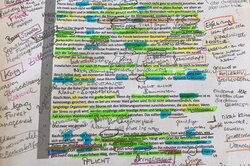
There is a strong ‘we’-feeling in the context of forestry and personal identification with the professional field is often significant. We are investigating the question of how to actually become part of this ‘forest family’. For most of its members, the path into the forest was not planned from birth. To approach this question, we examine graduate studies of forestry: How does the role perception of future foresters develop, how are forest-related values formed and how is knowledge from related disciplines dealt with? In short: How do you actually become a forester during your studies?
We are exploring this development of future foresters together with our project partners of the University of Applied Forest Sciences Rottenburg. To this end, we use a mix of methods including quantitative questionnaires and qualitative interviews aimed at understanding students at different points during their studies. We complete this by analysing the curricula of the universities of applied forest sciences in order to establish links between the respective course content and the subject and role perception of students.
Contact: Ms. Diana Cichecki
KonTRAstiv – talking about the forest

Launched at the beginning of 2023, the project ‘Constructive transdisciplinary debates for sustainable forest management. Discussing complex and conflicting issues from multiple perspectives’ (KonTRAstiv) aims to promote constructive dialogue for sustainable forest management – science-based and tested in practice.
Contact: Wiebke Hebermehl und Dr. Beate Kohler
